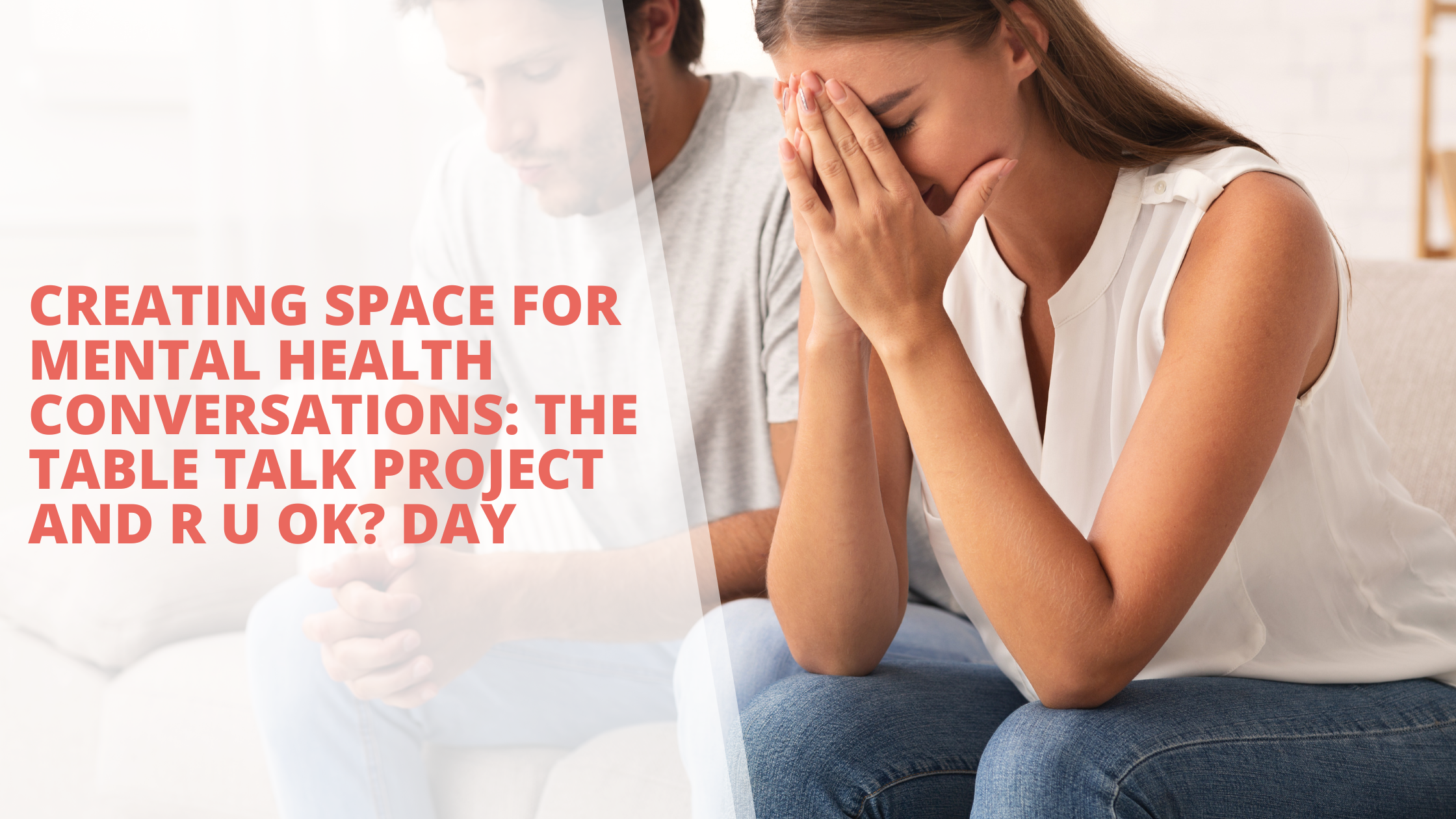
Yesterday was R U OK? Day—a day dedicated to checking in on family and friends to make sure they are okay. As someone who has struggled with this day, I both celebrate and grapple with its purpose. On one hand, it’s fantastic to see the growing awareness around mental health and suicide prevention. On the other, my concern is that people often check in only on days like R U OK? Day, without continuing the conversation beyond that. Mental health isn’t something to be addressed just once a year. We need to create a culture where these conversations happen regularly and naturally.
At The Table Talk Project, we believe that the dinner table can be a powerful space to have these essential conversations. Talking about mental health and even suicide with our children is not something to shy away from. In fact, avoiding these topics can leave our kids feeling isolated and unsupported. Conversations about mental health should be part of our everyday lives, just like discussions about school, friendships, or future plans.
The Reality of Mental Health and Suicide: Startling Statistics
The statistics around youth mental health and suicide are alarming. In Australia, suicide is the leading cause of death among people aged 15-24. Each year, around 3,000 Australians die by suicide—an average of 8.6 people a day. For every suicide, there are tragic ripple effects that impact families, friends, and communities. And perhaps the most shocking statistic of all is that 1 in 7 young Australians will experience a mental health condition. These numbers are not just statistics—they represent real people, real families, and real lives affected by mental health struggles.
These figures can feel overwhelming and even frightening for parents. But it’s crucial to remember that we are not alone in this. The path to mental wellness, both for ourselves and our children, starts with simple, honest conversations.
Embracing Conversations Around Mental Health
As the founder of The Table Talk Project, I, Neil Milton, have experienced the impact of mental illness and suicide within my own family. It can feel like a lonely place, filled with questions and what-ifs. I know the pain of losing a loved one to suicide and the ongoing challenges of supporting those who struggle with their mental health. It’s not easy to talk about, but it is necessary.
R U OK? Day serves as an important reminder to check in on those we care about, but it should be more than just a single day of action. It should inspire a lifestyle of checking in regularly with family and friends. The Table Talk Project provides a consistent, safe space to have these ongoing conversations over dinner. It’s about more than just asking “Are you okay?”—it’s about listening, understanding, and building trust through regular dialogue.
How The Table Talk Project Can Help
At The Table Talk Project, we provide resources to help parents navigate these difficult but essential conversations with their children. Our website includes conversation starters, guides, and practical tips to create an open and supportive environment where kids feel safe discussing their feelings, fears, and struggles. Our aim is to empower parents to break the silence around mental health and create a space where these topics can be discussed naturally and without stigma.
We also understand that sometimes, a conversation is not enough. If you or someone you know is in crisis, please reach out to professional support services. You are not alone. There are many organisations ready to help, such as Lifeline, Headspace, and Beyond Blue.
You’re Not Alone: Reach Out for Support
If you or someone you love is struggling, here are some important resources:
- Lifeline: 13 11 14
- Headspace: For young people aged 12-25. Visit Headspace for more information.
- Beyond Blue: 1300 22 4636 or visit Beyond Blue
You can also find a comprehensive list of support services on our website here.
Remember, you don’t have to face this alone. By making mental health conversations a regular part of our lives, we can support one another through the highs and lows. Let’s use our dinner tables not just for food, but as a place where every conversation matters—where we check in, listen, and build a stronger, more compassionate community.

